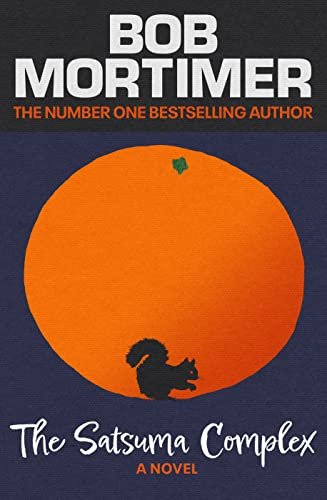Finding Humor in the Underbelly: A Review of The Satsuma Complex by Bob Mortimer
Sometimes, a book finds you at just the right moment, and for me, The Satsuma Complex by Bob Mortimer was that serendipitous find. As I bemoaned the dwindling presence of humorous British fiction in my life, a friend handed me this gem and suggested not only I read it, but also that I dress like its hapless protagonist, Gary Thorn—a recommendation I gracefully declined. Nevertheless, it swept me into a world where comedy meets noir-crime fiction, and I was hooked.
At the heart of the novel is Gary Thorn, a bumbling legal assistant whose life is marked by an effortless form of mediocrity. He coasts through his job and friendships, seemingly devoid of ambition or serious relationships, until he crosses paths with Emily—an enigmatic woman caught in the web of a sociopathic private investigator and his corrupt Metropolitan Police cronies. Their interactions, which bloom amidst the chaos of crime and betrayal in the gritty streets of Peckham, are achingly real yet filled with comedic undertones that Mortimer skillfully unpacks.
The duality of character perspectives—Gary and Emily—adds depth to the narrative, even if I felt the emotional connection was a bit one-sided. Gary’s awkward charm and Emily’s struggle for agency create an intriguing dynamic, though I wouldn’t quite label it a classic love story. Mortimer’s writing shines particularly in the dialogue, rich with working-class slang and witticisms that had me laughing out loud at moments, a rarity for me as a reader. “Fill your boots” was a delightful phrase that made me chuckle with nostalgia.
While the plot had its hiccups, Mortimer’s comedic storytelling often compensated for its convoluted twists. As Gary navigates through a series of unfortunate events—with a particularly comical sideline of advice from his alter-ego squirrels—the book hums along at a brisk pace. The writing is polished, though I wished for more vivid descriptions of crucial plot points; it felt like the author was more engaged with crafting humorous bread-making scenes than the high-stakes moments involving firearms.
Despite a cast that felt familiar, each character was recognizable enough to keep the narrative lively. You’ll find the good cops, bad cops, and comical baristas woven into this tapestry, yet I couldn’t help but notice a lack of diversity. Every character felt quintessentially British; while this provided authentic flavor, the homogeneity stood out in a contemporary context.
As for the themes of corruption, violence, and betrayal, they are presented through a comedic lens, often leaving me pondering the absurdity of it all. The occasional sprinkle of pop culture references surely enhances the narrative; however, the portrayal of violence resonated as lethargic compared to its American counterparts.
In conclusion, The Satsuma Complex is a quirky, humorous take on crime fiction that blends the absurd with the gritty realities of life. If you’re on the lookout for a light, comedic read that pokes fun at both its characters and its readers, this book should find a cozy spot on your shelf. While I’m still contemplating my next read (or maybe a dip into Mortimer’s The Hotel Avocado), one thing is clear: I’m always up for a comedic romp through the intricacies of human folly—a theme Mortimer captures brilliantly.







